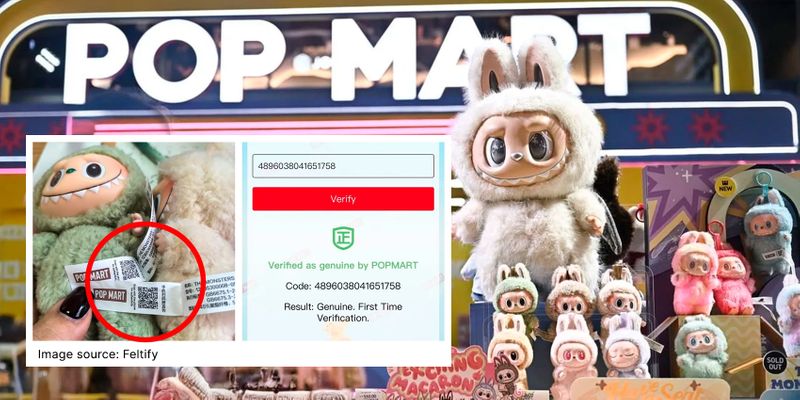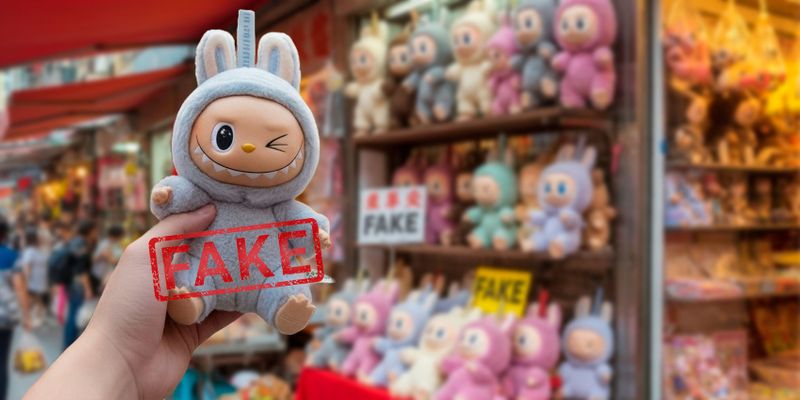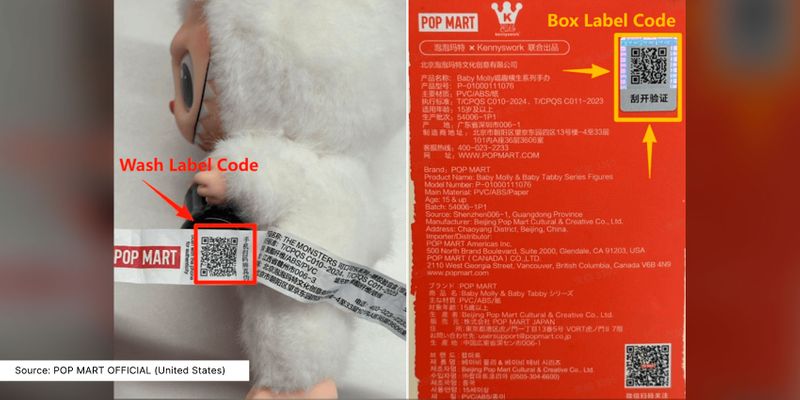Buyers Urged to Scan Labubu QR Code to Verify Authenticity

Authorities in the United Kingdom have seized thousands of counterfeit Labubu dolls over safety concerns. Buyers are encouraged to scan the QR code on the dolls’ packaging to quickly verify their authenticity.
The furry, monster-like Labubu dolls were originally created by Chinese toymaker Pop Mart and popularized through celebrity endorsements.
After receiving multiple parents’ tip-offs counterfeit versions of the Labubu dolls, branded as “Lafufus,” are being flagged by authorities for twisted limbs, deformed heads, and incorrect teeth counts.
Recently, in a three week operation, the UK authorities seized over 2,000 fake dolls across 13 retailers, all in breach of the Toys (Safety) Regulations 2011.
Table of Contents
Fake Labubus spread like wildfire across borders
“We’ve seen a worrying rise in counterfeit Labubu dolls being sold locally. These products do not meet UK toy safety regulations and could be dangerous, particularly for young children,” says Sandra Graham, Cabinet Member for Community Safety at North Tyneside Council.
But the UK case is far from isolated.
Authorities around the world have stepped up efforts to identify and seize counterfeit Labubu dolls, and recent cases show just how widespread the problem has become.
The customs officers at the Seattle–Tacoma International Airport, United States uncovered a cargo shipment carrying the dolls that were falsely declared as “LED Bulb.” It contained more than 11,000 counterfeit Labubu dolls valued at over $500,000.
Similarly, a striking image shared by Fox 13 Tampa Bay, displayed a counterfeit Labubu holding a Coca-Cola bottle.
The image highlighted sloppy and inconsistent details that distinguish the fakes from authentic Pop Mart products.
Unmasking the fake Labubu aka “Lafufu” supply chain

Investigators in China have traced the production of Lafufu dolls.
It was found that in the underground workshops of Shenzhen's Huaqiangbei district, elderly workers were reportedly cutting and assembling doll heads made of silicone.
The Chinese customs have also reported multiple seizures: nearly 49,000 counterfeit dolls and 200,000 related items such as pendants and zipper bags.
Still, video footage shared on Douyin, the Chinese version of TikTok, shows large sacks of Lafufus being sold on Chinese city streets. These fake dolls were found on the streets of Taipei and Seoul’s youth shopping districts.
Experts suggest for brands to include a QR code for product authentication in order for customers to quickly verify the originality of their Labubu dolls with a simple scan.
How to check if the Labubu is real?

The original manufacturing company, Pop Mart, has added built-in security features to help parents and collectors verify genuine dolls in seconds such as a QR code at the bottom of their boxes.
The QR code on every packaging of authentic Pop Mart Labubus are made using an advanced QR code generator software.
Here’s how to verify a Labubu QR code:
- Locate the QR code.
- Open your smartphone camera or QR scanner.
- Point it toward the QR code to scan.
An authentic QR code Labubu packaging leads straight to a verification page on Pop Mart’s official website, automatically displaying the result.
Buyers may also manually enter the item’s verification code on the authentication page. Scratch the coating off the Box Label Code to reveal the code.
The purpose of the Labubu QR code check is to give parents and collectors a peace of mind by ensuring the toy is safe, regulated, and not one of the counterfeit Lafufus circulating in the market.
Other features to check the originality of the Labubu dolls are the holographic Pop Mart stickers and the faint UV stamp on one foot.
Apart from Pop Mart, famous toy brands such as LEGO and Mattel are already using QR codes on their products for authentication.
QR code as an anti-counterfeit solution
QR codes are emerging as one of the most effective tools in the fight against counterfeit products.
In this case, these Labubu QR codes not only prove the toys are genuine but also ensure it meets the safety standards counterfeit versions often fail to comply with.
Unlike stickers or packaging that can be faked, QR codes connect directly to a secure database, making them far harder for counterfeiters to replicate convincingly.
These scannable squares are growing as the modern day safety net, empowering parents to shop smart and keep their children safe.


